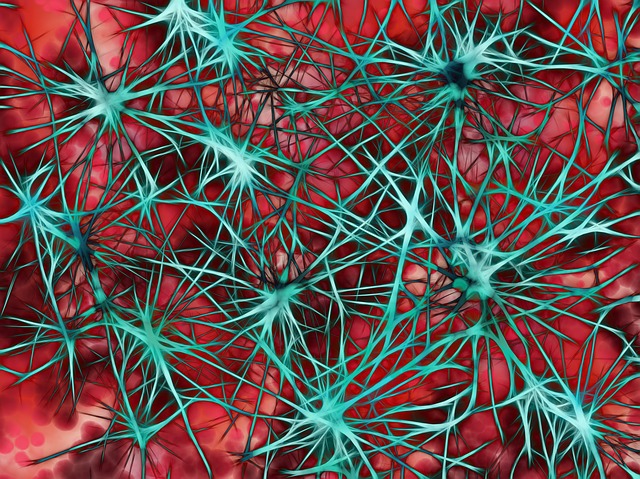Ronit Mor, NDDid you know that your stamina, gut health, blood sugar levels, heart rate variability, inflammation, emotional well-being, and even your ability to create lasting positive social connections, are all directly influenced by your vagus nerve?
The Vagus Nerve The vagus nerve is the longest nerve in the body. It is either one of two cranial nerves which extend from the brain stem all the way to the intestines. It connects the brain to many important organs including the heart, lungs, stomach, intestines, liver, and gallbladder. It’s involved in controlling the immune, cardiovascular, respiratory, and endocrine systems. Ronit Mor, NDDid you know that 80% of us struggle with stress on a regular basis?
Stress is your body’s reaction to a physical, mental or emotional strain or tension. It is brought upon by physiological, psychological and environmental events that the body perceives as challenging, threatening or demanding. These events are called stressors. Untreated chronic stress can result in serious health conditions including anxiety, insomnia, muscle pain, high blood pressure and a weakened immune system. Research shows that stress can contribute to the development of major chronic conditions, such as heart disease, depression and obesity. Some studies have even suggested that unhealthy chronic stress management, such as overeating “comfort” foods, has contributed to the growing obesity epidemic Russell Skinner, MDAre you constantly struck down by colds, flu and other infections – no matter how well you look after yourself?
If yes, then perhaps your stress levels are to blame. Stress is the body’s reaction to a physical, mental or emotional strain or tension. It is brought upon by physiological, psychological and environmental events that the body perceives as challenging, threatening or demanding. These events are called stressors. When stressors are present, your body’s “fight-or-flight” reaction gets turned on. Your brain sends defense signals to the endocrine system resulting in an onslaught of stress hormones being pumped around the body. While these hormones are useful in acute situations, their ability to interfere with the immune system can result in inflammation, reduced white blood cells, and a higher susceptibility to infection and tissue damage. Ronit Mor, NDDid you know Americans are finding it harder and harder to grab a good night’s rest? According to a consumer report, a staggering 68 percent—about 164 million Americans—struggle with sleep at least once a week. Not only that, but 45 percent of Americans say that poor or insufficient sleep affected their daily activities at least once in the past seven days, according to the National Sleep Foundation
What is causing my lack of sleep? Losing valuable shut-eye can be blamed on several varying factors. Anxiety, stress, and depression are some of the most common causes of sleeping problems along with anger, worry, grief, and trauma. Ronit Mor, NDSummer has begun, and with it comes extended daylight. For many people, these long days are brimming with vacations, parties, and other enjoyable events. While these activities are most certainly fun, there could also be an element of stress involved. How our bodies handle stress, whether big or small, is important to our well-being, and excessive stress can be problematic for our overall health. To get a better glimpse at how the body manages the triggers of stress, you must go to the source of it all—the HPA axis.
What is the HPA axis? The HPA axis is the interaction that exists between the hypothalamus, the pituitary gland, and the adrenal glands. This axis is the interconnecting of the central nervous system with the endocrine system and is responsible for regulating functions such as stress response in the body. Ronit Mor, NDDiabetes, or hyperglycemia, is a condition in the body that causes the levels of glucose (a type of sugar made from the carbohydrates in the diet) to rise higher than normal.
Type 2 diabetes is the most common form of diabetes. Type 2 diabetes, sometimes called adult-onset or noninsulin-dependent diabetes, is a metabolic disorder that affects the way the body handles glucose. If someone is diagnosed with type 2 diabetes, it means their body doesn’t use insulin properly. This is called insulin resistance. The root causes which could trigger type 2 diabetes are lifestyle related, usually developing because of several factors, including: Russell Skinner, MDNeuroscientists at the University of Pittsburgh have identified the neural networks that connect the cerebral cortex to the adrenal medulla, which is responsible for the body’s rapid response in stressful situations. These findings, reported in the online Early Edition of the journal Proceedings of the National Academy of Sciences (PNAS), provide evidence for the neural basis of a mind-body connection.
We all accept that stress is terrible for us, and that when our mental health suffers, the rest of our health follows suit. And yet the branch of medicine that’s devoted to this integral relationship—psychosomatic medicine—is often written off as pseudoscience. |
Archives
October 2022
Categories
All
|
|
FOLLOW US
|
RESOURCES
|
©2020-2024 Ronit Mor LLC. ALL RIGHTS RESERVED
All statements on this website have not been evaluated by the Food and Drug Administration. The content of this website is not intended to diagnose, treat, cure, or prevent any disease.
All statements on this website have not been evaluated by the Food and Drug Administration. The content of this website is not intended to diagnose, treat, cure, or prevent any disease.








 RSS Feed
RSS Feed
